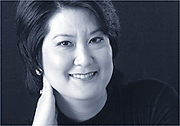


Changing Hawaii
JUDGES are some of the most respected professionals in society. They are so distinguished and learned, in fact, that everybody stands whenever they enter or leave the courtroom. Who else is so openly revered? Evaluating our
esteemed black robesThe deference may have gone to their heads. Judges -- especially justices -- tend to be, ahem, a bit more imperious than most. In fact, those inflicted by the dreaded "Black Robe Syndrome" honestly believe they are smarter or better than the vast majority of nonjurists.
This mindset cultivates a counterproductive defensiveness when it comes to public critiquing of their job performance. The highbrows on the bench call it "judicial independence" but it's more like "Oh, leave us the heck alone."
That explains the judiciary's chilly response to a suggestion by the Hawaii State Bar Association's Standing Committee on Judicial Administration. Chaired by Douglas A. Crosier, the committee is urging that island judges be independently evaluated and that the results be shared with the community.
Last night, the HSBA's board of directors debated the concept but ran out of time before a vote could be taken. It will return to the agenda on Aug.19.
The proposal may be controversial because, at this point, it is still general and undefined. For example, would it follow the format of the bar association's evaluation in San Francisco, whose survey form fits nicely onto a single legal-size sheet of paper?
The Bay City's criteria are simple and direct. In the first section, attorneys are asked to rate each judge -- by writing E for Excellent, G for Good or N for Needs Improvement -- on whether he or she:
In the second section, survey-takers in San Francisco rate the parties -- by using SA for Strongly Agree, A for Agree, D for Disagree or SD for Strongly Disagree -- on statements measuring whether a judge:Prepares for judicial proceedings.
Does not prejudge issues or cases.
Knows and applies the rules of evidence and procedure, and substantive law.
Readily grasps factual and legal issues.
Is considerate of attorneys and litigants, and demonstrates appropriate judicial temperament.
Is a decisive jurist and is prompt in making rulings.
Has the ability to communicate the substance of decisions and to facilitate settlement of cases.
THESE are pertinent, valuable measurements of judicial performance that should be easy to answer for those filling out the survey, as well as easy to understand by interested laypersons. And local black robes who are nervous about being publicly judged in the first place must be relieved at seeing the kinds of qualities rated.Manifests bias based on personal or political favor, race or ethnicity, gender, sexual orientation or disability.
Conducts civil or criminal jury trials fairly.
Is slanted neither against the defense nor plaintiff in civil rulings, or the defense nor prosecution in criminal cases.
Sentences in a fair and consistent manner.
After all, aren't these valid and bare-minimum expectations for judges and justices? Shouldn't they themselves be demanding these things from all of their peers on the bench?
Because how exactly is the Hawaii judiciary supposed to improve if it doesn't get any constructive feedback on how it is doing? Or does it think, like the famous beer commercial, that it can't get any better than this?
Diane Yukihiro Chang's column runs Monday and Friday.
She can be reached by phone at 525-8607, via e-mail at
dchang@starbulletin.com, or by fax at 523-7863.